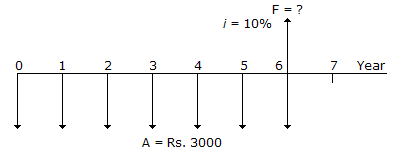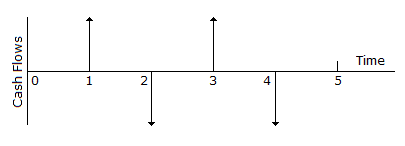Civil Engineering :: Engineering Economics
- The owner of the construction company makes use of the estimate:
- What market situation exists where there is only one buyer and only one seller?
- What is defined as the reduction or fall of the value of an asset due to constant use and passage of time?
- What type of depreciation is due to the reduction of the physical ability of an equipment or asset to produce results?
- Liquidity ratios are used:
- A man invested P110,000 for 31 days. The net interest after deducting 20% withholding tax is P890.36. Find the rate of return annually.
- Mr. Bacani borrowed money from the bank. He received from the bank P1,842 and promised to repay P2,000 at the end of 10 months. Determine the rate of simple interest.
- What bond whose security is a mortgage on certain specified assets of the corporation?
-
In the cash-flow diagram shown in the given figure

-
In the cash flow diagram shown in the given figure



 Whatsapp
Whatsapp
 Facebook
Facebook

